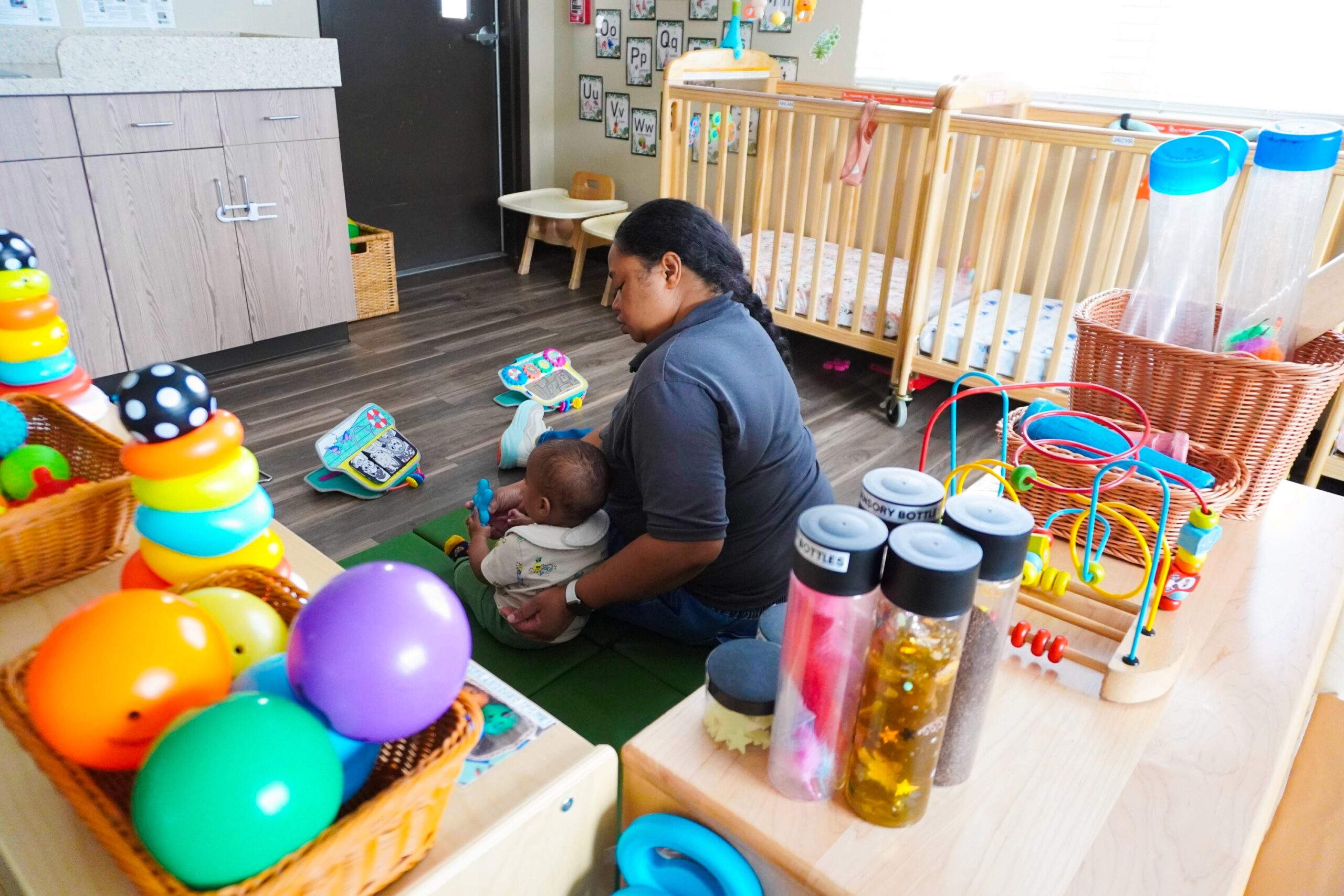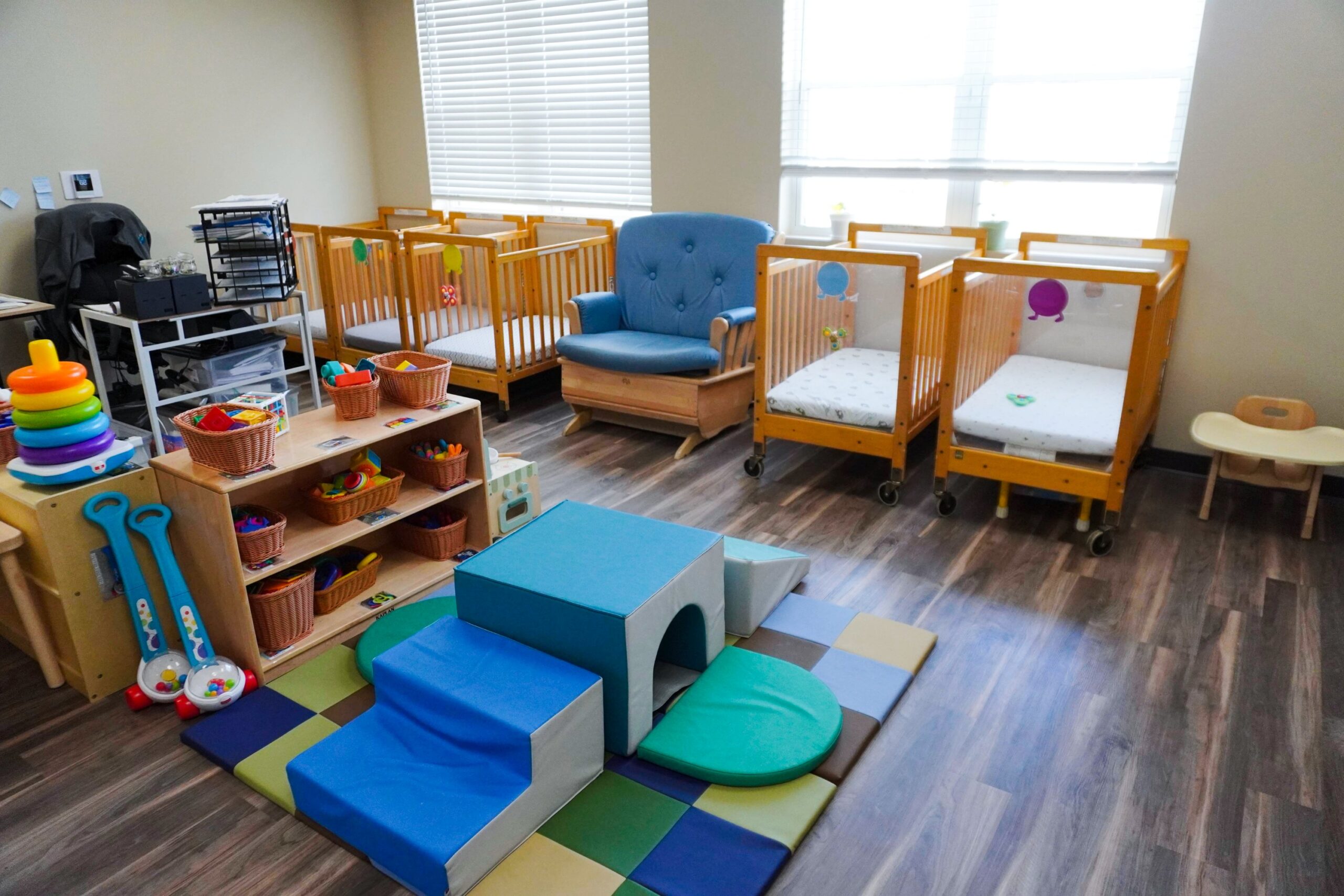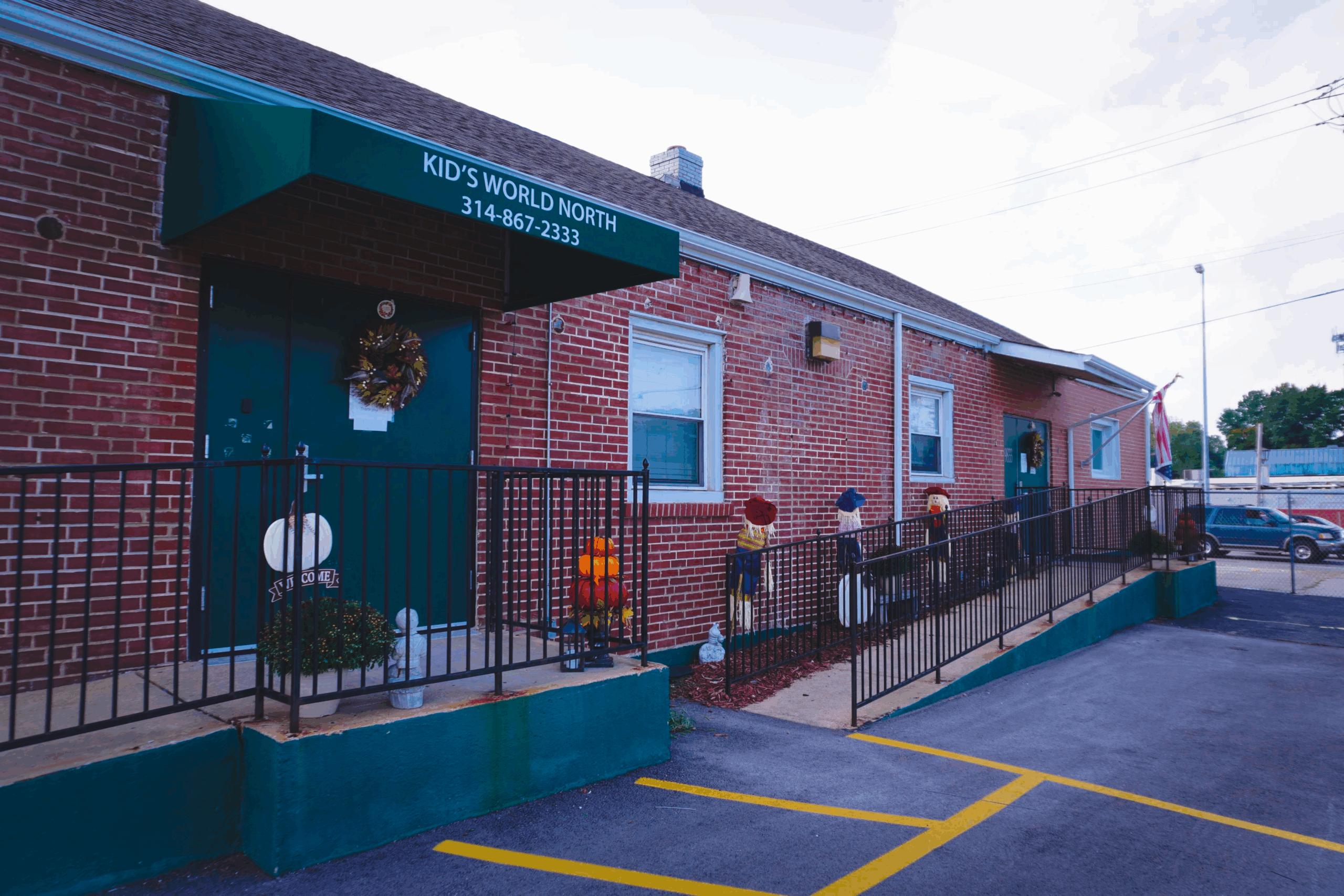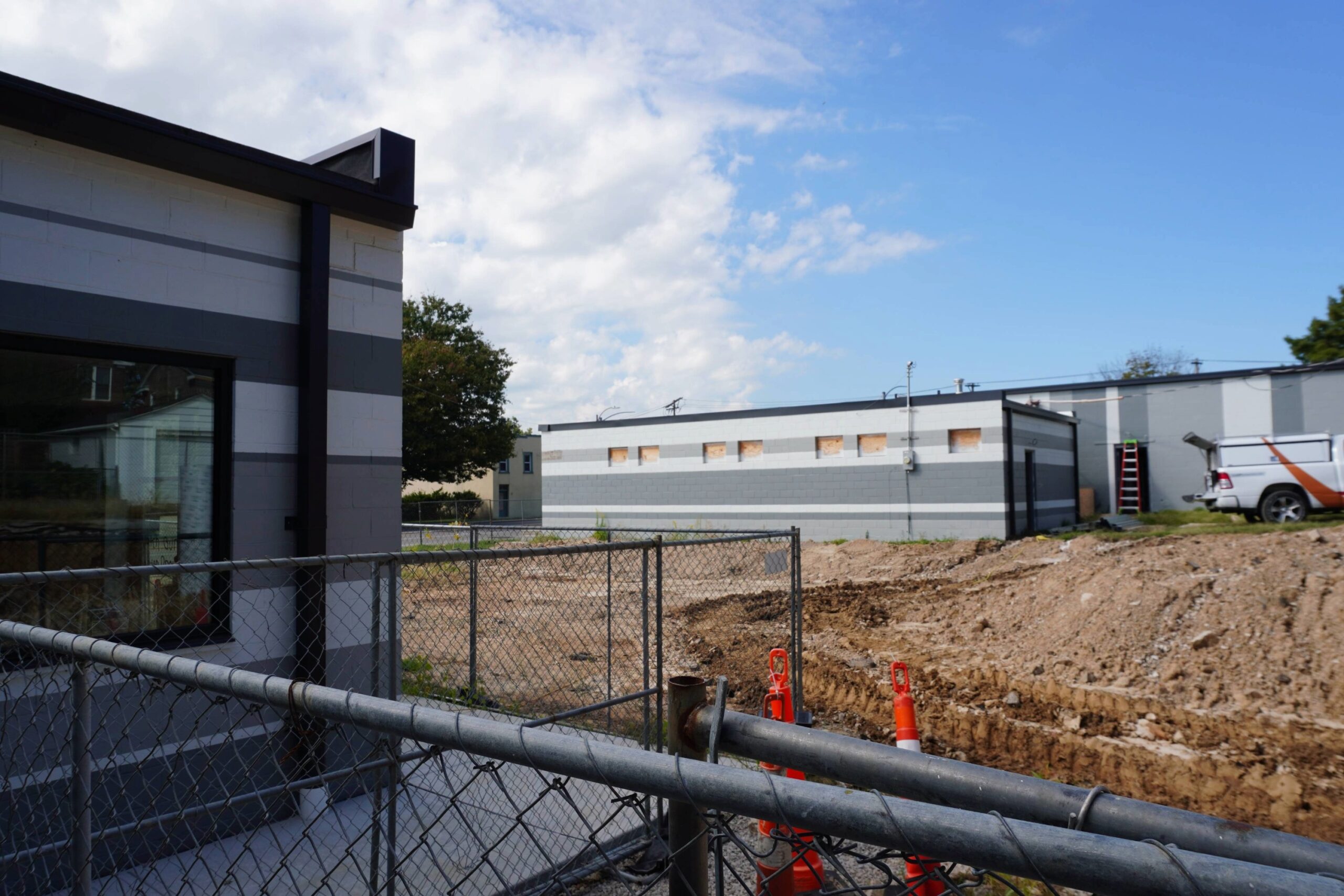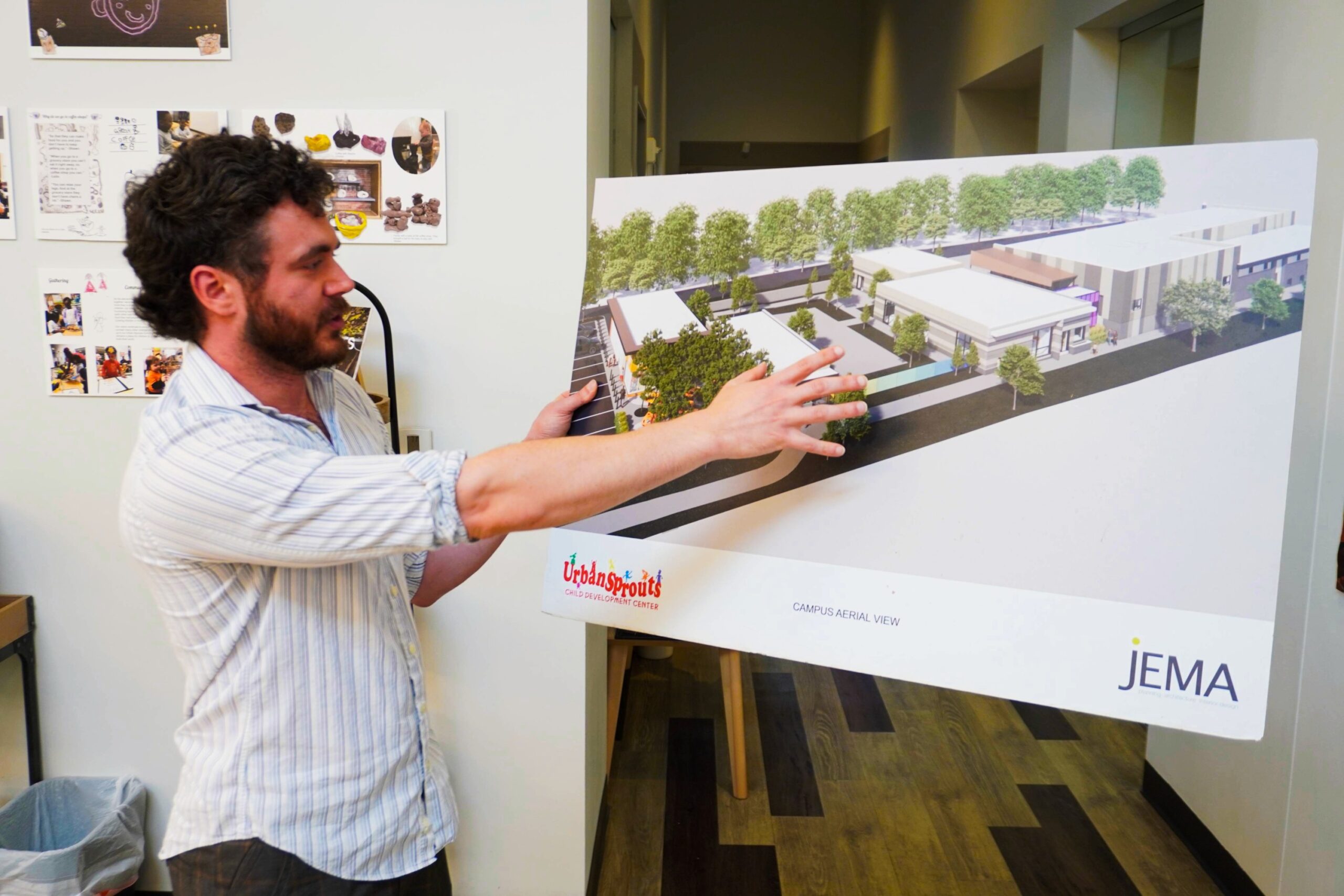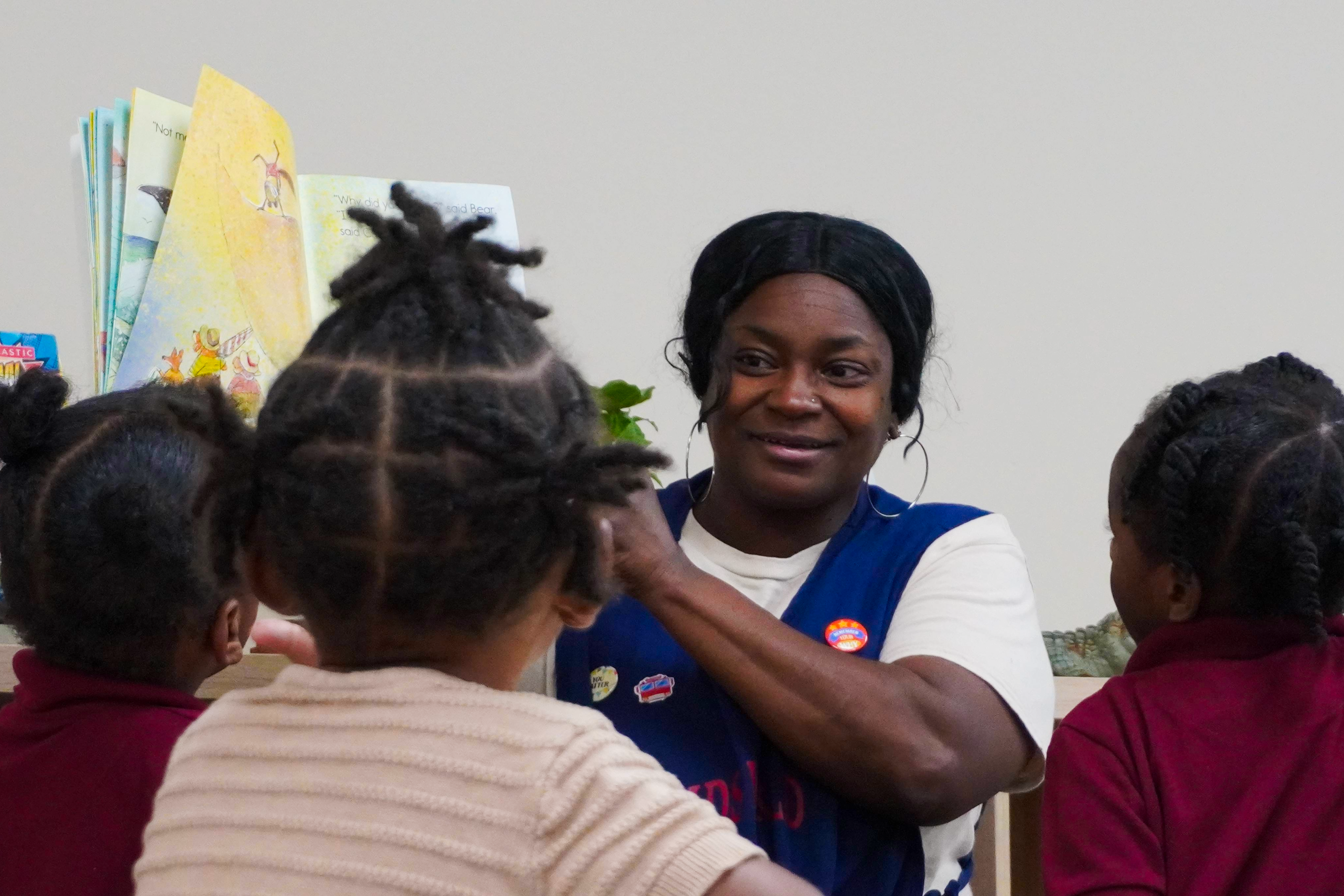Building Joyful Spaces: How IFF Is Helping to Transform St. Louis’s Early Childhood Ecosystem
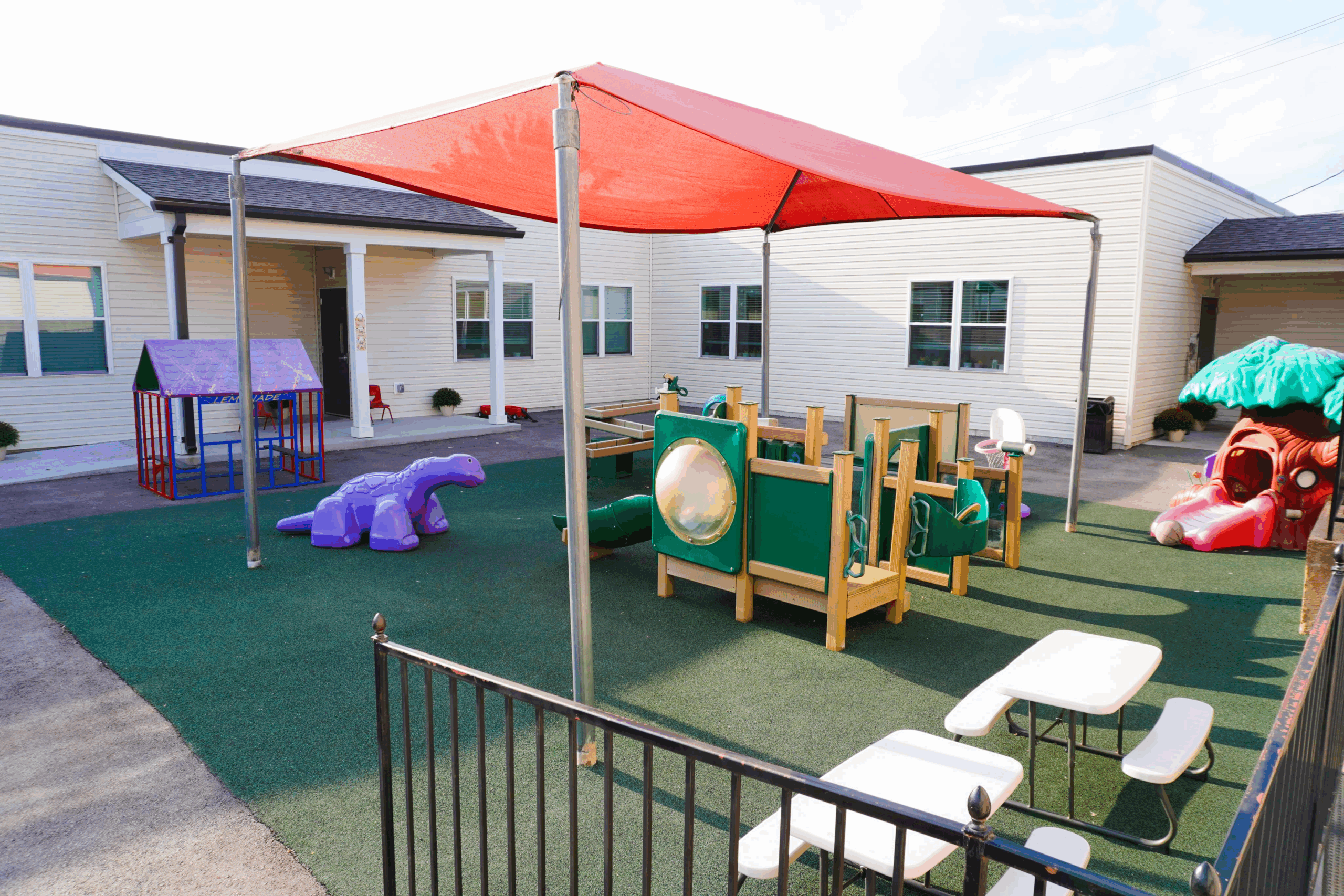
On a sunny afternoon not long into the new school year, Felicia Cook leads a tour through her partially expanded early childhood center, Kids World North. In one classroom, new walkers bob to the inescapable tune of “Baby Shark.” In another, preschoolers flip through picture books. Children’s artwork featuring autumn trees with thumbprint leaves hangs on the wall behind them. A nearby multipurpose area is lined with pint-sized wooden chairs and tables, soon to be thronged for a post-nap snack. At every turn, Cook points out enhancements from the ongoing construction project while greeting students by name.
“We started off in a facility that was 4,500 square feet,” Cook says. “We literally used every ounce of space that was there. I mean, we were using corners and hallways as closets. … For us to be able to do what we want to do in this community, we have to expand.”
Once completed this fall, the expansion will more than double the facility’s capacity, adding six classrooms and enabling Cook’s team to serve up to 130 students. That moment can’t come soon enough — Cook shares that the waitlist for Kids World North has continuously been up to two years long.
Kids World North isn’t alone. Even before the May tornado, the St. Louis region faced a shortage of at least 20,000 early childhood education seats. But organizations like IFF are chipping away at that problem by helping local early childhood centers navigate and fund projects that improve the quality of their facilities. This, in turn, better supports the region’s workforce by ensuring more parents return to their jobs with confidence that their children are in a safe, accessible, and enriching environment.
IFF is a Midwestern community development financial institution (CDFI) supplying services at the intersection of facilities and finance. Since IFF’s work goes beyond providing access to capital, the executive director of IFF’s southern region, Stephen Westbrooks, likes to refer to the organization as a “CDFI+.” What sets IFF apart from other CDFIs is that it focuses almost exclusively on nonprofits and has a team of real estate consultants on the ground who help projects cross the finish line.
Early childhood education (ECE) is one of the main sectors that IFF works in to create what Westbrooks calls “healthy, vibrant, resilient communities.” In St. Louis, that takes form as Joyful Spaces, a program that empowers providers to assess their own facility needs, apply for funding to make improvements, and receive guidance throughout the process.
“When we think about early childhood and the challenges that the system itself faces, you think about it in terms of a three-legged stool. There’s accessibility, there’s affordability, and there’s quality,” Westbrooks says. “What tools do we have to try to offer solutions to the system that addresses some aspects of that three-legged stool?”
IFF helps facilities focus on foundational issues first, ensuring that buildings are safe, warm, and dry for the children who are learning within them, before moving on to other programmatic aspects that improve facility quality. When Felicia Cook of Kids World North first learned about IFF, she was dealing with flooding in the basement of the original building and a leaky roof due to hail damage and old bullet holes.
“Nobody goes into early childhood or any type of education and says, ‘I’m doing this because I want to be rich.’ You do this strictly for the love of children and the majority of what we bring in goes out in payroll, so there’s not always a lot of extras for [when] the water heater goes out,” Cook says. “IFF and Joyful Spaces helped us with prioritizing things. … Keeping the facilities running has definitely been a benefit from IFF.”
Now in its second year of the Joyful Spaces program, Kids World North is wrapping up its expansion and completing upgrades in the old building to maintain consistency across the facility. JSMF’s investment in IFF ensures that Cook can replace the flooring in the old building, install a new fire and security system, and purchase essential classroom materials like cribs and cots.
IFF is also funneling funding from JSMF into improvements at six additional early childhood centers. Projects range from procuring an LED sign to installing outdoor shade structures to building an entirely new site, while an additional investment in IFF is supporting centers that were damaged by the tornado.
One of the largest projects currently underway is the expansion for Urban Sprouts Child Development Center, where vacant commercial buildings nearby are being converted into a café and community space offering wraparound services to parents and educators alike. Roughly 70% of Urban Sprouts’ students come from households living below the poverty line, so these resources are intended to address issues of food security and wealth-building. And just like Kids World North, Urban Sprouts is adding new classrooms to expand the number of students they serve and put a dent in their waitlist.
None of this progress would be possible without a collaborative early childhood landscape. Terek Hawkins, senior program manager at IFF, explains that Joyful Spaces builds a cohort of champions, where each participating provider is responsible for sharing resources with five other ECE providers in the region. This approach expands the benefits of the program, creating a network of 35 providers to share resources.
“The Joyful Spaces champions have been mentoring and coaching and even if it’s just having a one-hour conversation every other week about the resources available or how to talk to contractors, just spreading knowledge because ECE providers are focused on the kids — that’s huge,” Hawkins says. “We needed a provider [like Kids World North or Urban Sprouts] who was able to network and build because we look at ECE from a strategy standpoint. We’re not just distributing grants. We’re looking to build an ecosystem of providers.”
But helping St. Louis’s ECE community advance has required first building trust and partnership across the entire system.
“When you’re leaning into economically distressed communities, there’s a lot of headwinds and it’s not as easy as you think,” Westbrooks says. “You think you have the best intentions in the world, and you show up with those intentions and you showed up with some money and you showed up with a skillset and you’re like, ‘Why wouldn’t you [take part]?’ And they’re like, ‘We don’t know you. No one ever comes around here with money trying to help, so this doesn’t seem right.’”
That’s where fellow JSMF grantee Gateway Early Childhood Alliance comes in. Led by Executive Director Tamyka Perine, the Alliance plays a vital role as a regional coordinator of St. Louis’s early childhood system. It’s also active in shaping solutions to entrenched problems that affect the region, like affordability and high teacher turnover.
“Having an entity whose charge it is to make inroads into the provider community across the city … having those relationships and having a network in place so we have better information about who’s done what so far and what role we can play, we don’t have to go and try to figure it out,” Westbrooks says of the Alliance. “That starts to create a pathway for additional solutions and helping to bring the system along and show up and be able to do some things that we otherwise might not be able to do.”
Back at Kids World North, it’s easy to see the effect the expanded facility has on the teachers, children, and, by extension, their parents and caregivers. Cook shares that the new space has improved morale by giving teachers and students the ability to spread out.
By improving the quality of ECE facilities — from large expansions all the way down to smaller projects like replacing a fence or a rusty railing — IFF is investing in quality early education, which has a ripple effect for the entire region.
“Early childhood is the precursor to not just building our community, but building workforce development, building knowledge within the children, the staff, the community,” Hawkins says. “I don’t want people to overlook and say, ‘Well, it’s just a fence.’ Well, actually, that fence makes the parents feel safe and makes the kids feel safe. … It’s small things like that. They have a huge impact.”

